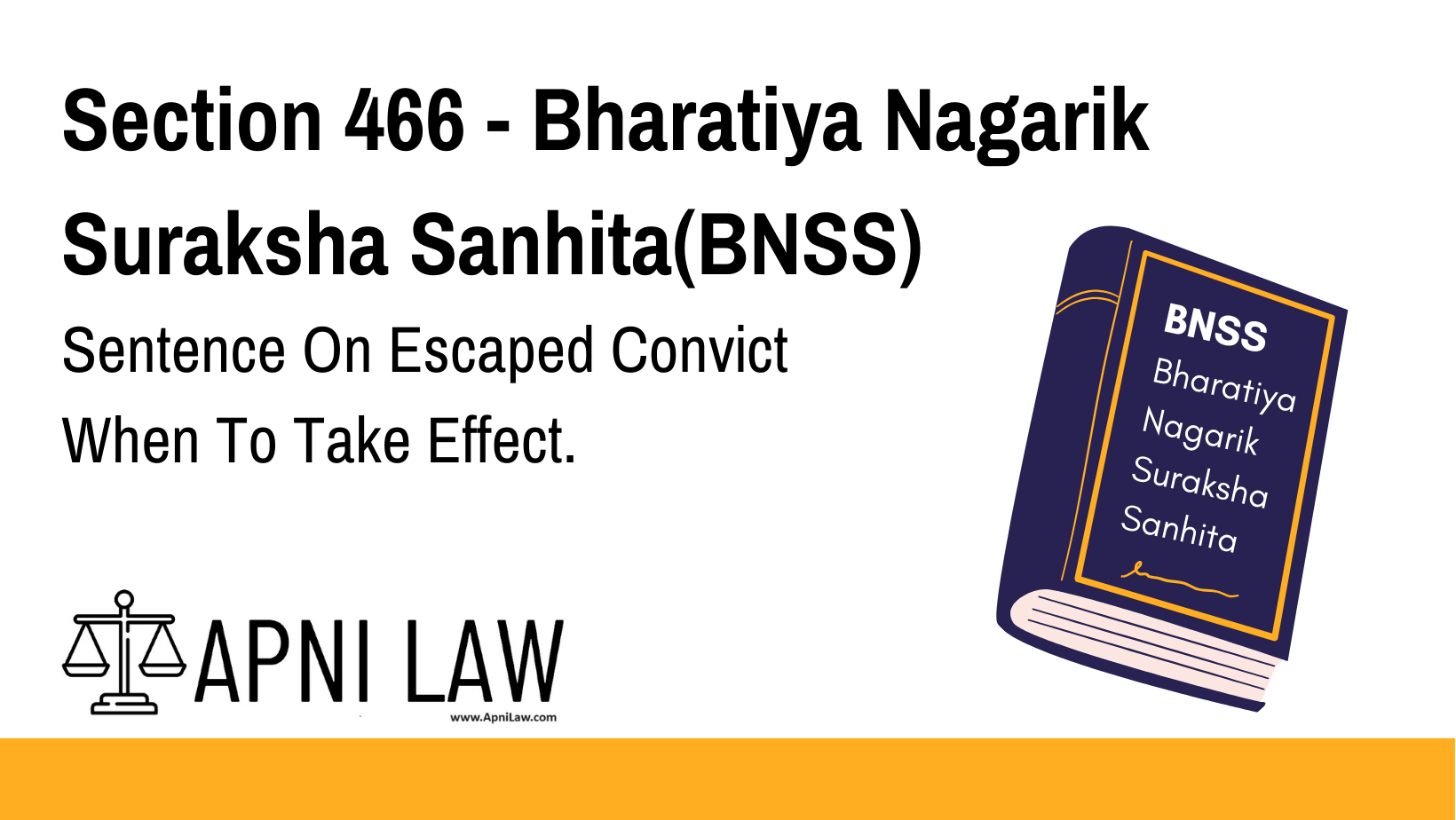Code
(1) When a sentence of death, imprisonment for life or fine is passed under this
Sanhita on an escaped convict, such sentence shall, subject to the provisions hereinbefore
contained, take effect immediately.
(2) When a sentence of imprisonment for a term is passed under this Sanhita on an
escaped convict,—
(a) if such sentence is severer in kind than the sentence which such convict
was undergoing when he escaped, the new sentence shall take effect immediately;
(b) if such sentence is not severer in kind than the sentence which such convict
was undergoing when he escaped, the new sentence shall take effect after he has
suffered imprisonment for a further period equal to that which, at the time of his
escape, remained unexpired of his former sentence.
(3) For the purposes of sub-section (2), a sentence of rigorous imprisonment shall be
deemed to be severer in kind than a sentence of simple imprisonment.
Explanation of Section 466 BNSS
Section 466 of the Bharatiya Nagarik Suraksha Sanhita (BNSS), 2023, deals with the timing of sentencing for convicts who escape from custody and are subsequently recaptured.
Key Provisions
- Immediate Effect for Severe Sentences
- If an escaped convict is sentenced to death, life imprisonment, or a fine, the new sentence takes effect immediately.
- Timing of New Imprisonment Sentences
- If the new sentence is severer in kind (e.g., rigorous imprisonment instead of simple imprisonment), it takes effect immediately.
- If the new sentence is not severer, it begins only after the convict serves the remaining time from their original sentence.
- Definition of “Severer in Kind”
- A rigorous imprisonment sentence is considered severer than simple imprisonment.
Illustrations
Example 1: Death Sentence for an Escaped Convict
A person convicted of murder escapes from jail. After being caught, he is sentenced to death under BNSS. His sentence takes effect immediately.
Example 2: Rigorous Imprisonment After Escape
A prisoner undergoing two years of simple imprisonment escapes. After being caught, he is sentenced to rigorous imprisonment for five years. Since rigorous imprisonment is severer, the new sentence takes effect immediately.
Example 3: New Sentence After Completing Unfinished Term
A convict with one year remaining in his sentence escapes. Upon capture, he is sentenced to an additional two years of simple imprisonment. Since the new sentence is not severer, he must first complete his remaining one year before the new sentence starts.
Common Questions & Answers on Section 466 BNSS
1. What happens if an escaped convict is sentenced to death or life imprisonment?
The new sentence takes effect immediately, overriding any remaining term of imprisonment.
2. If an escaped convict gets a new sentence of simple imprisonment, when does it start?
If the new sentence is not severer, it starts only after the convict completes the unserved portion of their original sentence.
3. What is considered “severer in kind” under Section 466 BNSS?
A sentence of rigorous imprisonment is severer than simple imprisonment.
4. Does the time spent outside prison during escape count toward the sentence?
No, the time spent outside custody during escape is not counted as part of the served sentence.
5. Why does this law exist?
It prevents convicts from escaping to shorten their sentences, ensuring fair punishment for both the original crime and the escape.
Conclusion
Section 466 BNSS ensures that escaped convicts face legal consequences without benefiting from their escape. The law distinguishes between severer and non-severer sentences, ensuring justice is served effectively.
For more legal insights, visit ApniLaw! 🚀








